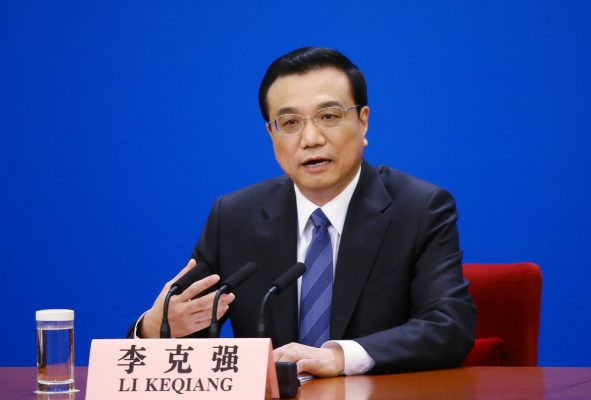
Àî¿ËÇ¿×ÜÀíÓëÖÐÍâ¼ÇÕß¼ûÃæ
3ÔÂ13ÈÕ£¬¹úÎñÔº×ÜÀíÀî¿ËÇ¿ÔÚ±±¾©ÈËÃñ´ó»áÌÃÓëÖÐÍâ¼ÇÕß¼ûÃ棬²¢»Ø´ð¼ÇÕßÌáÎÊ¡£
лªÉç¼ÇÕ߳½¨Á¦Éã
China will strive to make itself more inviting to foreign direct investment and foreign talent by widening market access and improving the business environment, according to a decision made on Friday at a State Council executive meeting presided over by Premier Li Keqiang.
The negative-list based market access regime for foreign capital, already being tried in the country’s 11 free-trade zones, will be rolled out nationwide as soon as possible, and more sectors will be further opened for FDI, the meeting decided. Profits of foreign-invested companies will be guaranteed free flow out of China.
To make China more appealing to foreign talent, the government will put in place an improved work permit system for foreigners working in China. Detailed guidelines for visa application and evaluation benchmarks for widened access to foreign talent will be developed in the second half of the year. Five- to 10-year multiple-entry visas will be issued to qualified expatriates.
“The inflow of foreign capital has been pivotal for China to maintain a relatively quick growth rate,” Li said. “Our industries are in general at the lower end of the global value chain. We must send a strong message of welcome to foreign investment.”
Inbound FDI fell by 0.1 percent year-on-year to 441.54 billion yuan ($65.5 billion) in the first half of this year, but the number of newly launched foreign enterprises in China was up by 12.3 percent, according to the Ministry of Commerce. In a sign of stabilizing FDI, the inflow rose by 2.3 percent year-on-year in June to 100.45 billion yuan.
Tax deferral will be extended to foreign investors if their local profits are invested in preferential fields. The flow of FDI to the country’s western and northeastern regions will receive extra support.
“We must make sure the policies cutting fees and taxes are fully implemented,” Li said.
The government will also improve the legal system in relation to foreign investment. Foreign capital will be encouraged in the restructuring of domestic enterprises, and intellectual property rights of foreign enterprises will be better protected.
“Related government departments should develop action plans as soon as possible and put these into action quickly, continuing to take China to new heights of opening-up and investment,” Li said.


